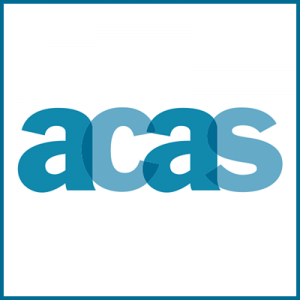Note: a subsequent legal change has affected the accuracy of this material.
April 2014 saw the introduction of the Acas “early conciliation” scheme as an important part of the employment tribunal process. Let’s review the lessons from the past 18 months.
What is Acas early conciliation?

We often advise employees to close the process immediately it is opened because we feel the employer will only respond to an employment tribunal claim, especially where the employee has the benefit of legal expenses insurance.
The statistics show that
- 75% of employees are giving Acas Early Conciliation a fair go
- 78% of those who try it don’t proceed to a tribunal claim
- Of that 78%, 15% resulted in a settlement (known as a COT3) (85% abandon their claim and most cite fees as the reason)
- The other 22% progressed to a tribunal claim
- Of that 22%, Acas settles half before the final hearing date
- 96% of claims settled by Acas are actually paid by the employer (the global figure is 63%, with the other 37% going unpaid)
In practice, after sending an unfavourable appeal outcome in a grievance or dismissal, employers can now expect a telephone call or email from Acas asking whether they think an out-of-tribunal settlement is possible using their Acas early conciliation service.
If both parties want to try this, the clock is stopped on the employee’s tribunal claim deadline for up to four to six weeks while Acas tries to settle the case outside the employment tribunal process.
In the past 18 months, Acas have changed their policy and now allow representatives to discuss the case with them, after a phone call from the employee to confirm that they are okay with this.
As an employer, you may not want to agree to Acas early conciliation if:
- You think the employee will not stump up the (means-tested) £160 or £250 fee for bringing a claim
- The employee is near the end of the three-month time limit and may not get their act together in time to put the claim in.
- It is a very complicated case with lots of issues, because the time allowed for conciliation may not be enough.
- You have a policy of fighting every case to deter claims (as some large employers do)
Our view is that Acas early conciliation provides plausible deniability for discussing the merits of a claim with the employee without sending a message of weakness.
It also allows you to find out more detail about the strengths and merits of the claim you face before the employment tribunal process, at a level which sometimes is not forthcoming until months later.
Many employers will want to make the most of this, taking an early view on the prospects of a claim, picking their battles early and disposing of the cheaper and simpler claims as soon as possible in Acas early conciliation.
For those who want to read the report, it is here.
